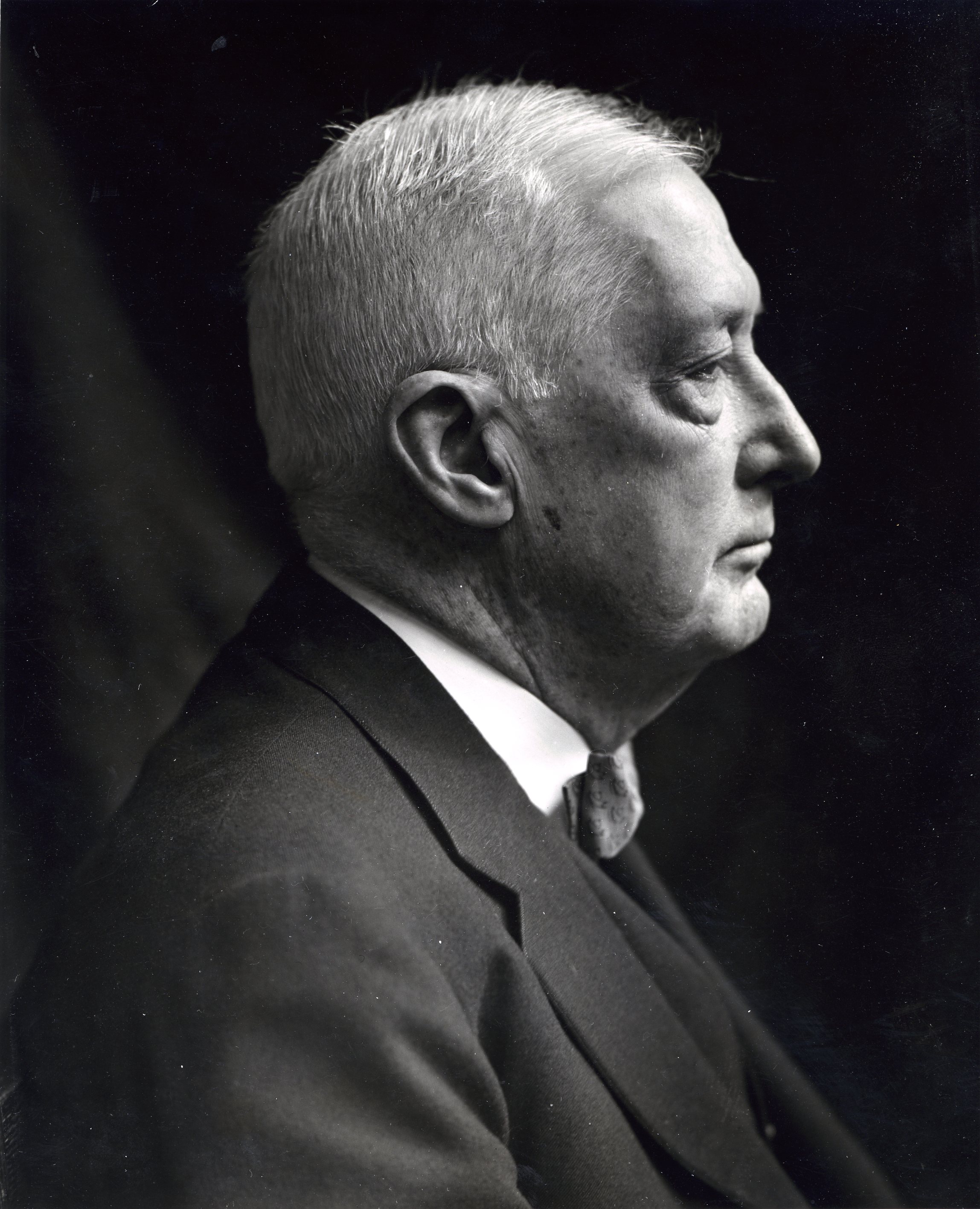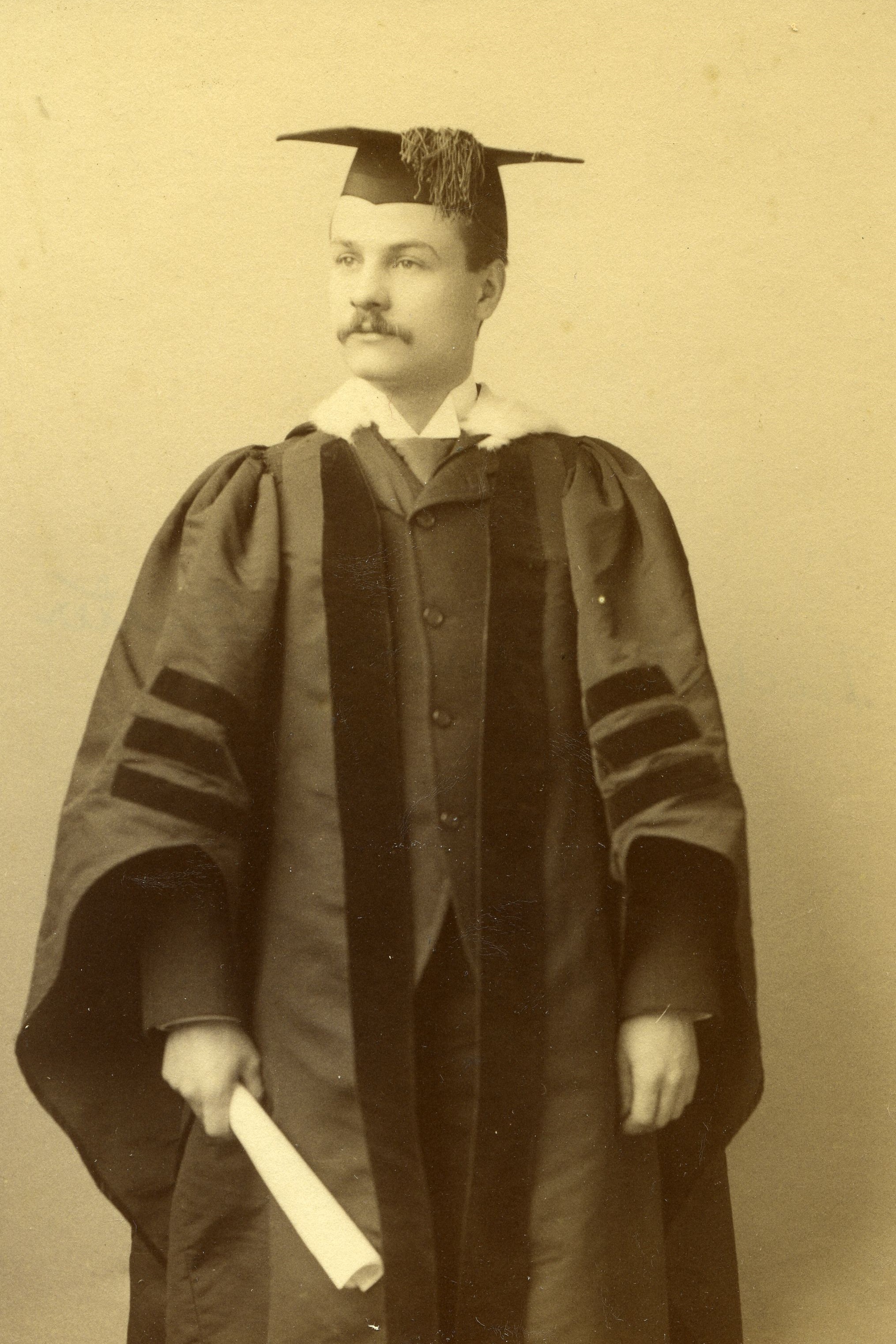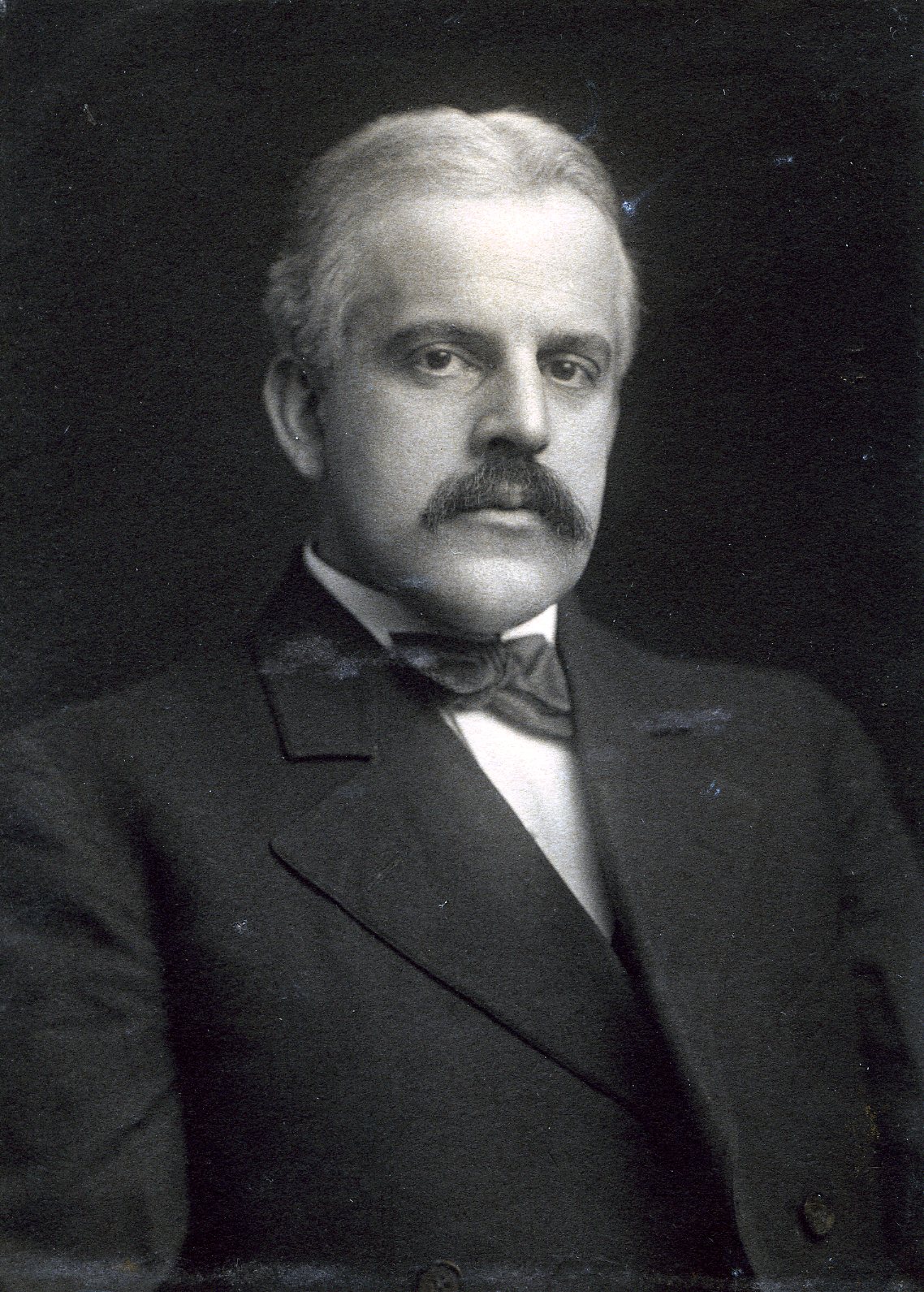Member Directory,
1847 - 1922
Geoffrey Parsons
Editor
Centurion, 1922–1956
Gifford R. Beal and Herbert M. Richards
Douglaston, New York
New York (Manhattan), New York
Age forty-three
Dorset, Vermont

Archivist’s Notes
President of the Century Association, 1945–1949; secretary, 1938–1944; designated an honorary member in 1951. Father of Geoffrey Parsons Jr.
Century Memorial
Geoffrey Parsons graduated from Columbia College in 1899 and from the Columbia Law School in 1903. He practised law for three years, and then gave it up for good and got a job as a reporter on the Evening Sun. He was exceedingly interested in politics, and by 1910 he was writing editorials for the Sun; but in 1918 he moved over to the Tribune as an editorial writer, and there he worked the rest of his life. His training as a reporter made him shun isolated meditation, or the writing of impersonal essays. He became the the chief editorial writer for the Tribune, and from that rostrum he rescued the Republican party from its post-war miasmas and delivered it from the blight of the isolationists. He had a kind of innate subtlety that enabled him to get along with difficult people; and though he was on the side of the angels, the compromises he was compelled to accept sometimes seemed to put him rather far back from the wings. Nevertheless, he was always ready on the instant to defend his editorial writers. He was sure that the individual “is the center of effective journalism,” and he deliberately refrained from tampering with the styles of his writers lest they should become molded into conformists without characters of their own. The job of an editor was not, he thought, the composition of belles-lettres; it was to stir the imagination of readers toward supporting a cause or toward forming a sensible and balanced judgment, and for this purpose an editorial must have the driving power of unstandardized individual thought.
Geoffrey’s newspaper career spanned a half century that he called “perhaps the most harrowing man has ever faced.” He wrote much of its history as a reporter. He interpreted and appraised it, as an editorial writer. And he helped shape it to the extent that what he wrote influenced his time. Withal, he made a great newspaper, and was a power in the land.
He was President of the Century; and while he was President, the Club had its centenary party, the like of which can scarcely be imagined by the midgets of these modern days. Before that, he was Secretary, and he had served on the Admissions Committee. In all these offices he was competent, and reliable, and extremely pleasant. He had a diffident approach, and contrived to give the impression that he really wanted an opinion or advice; but it shortly appeared that he knew a great deal more about the matter in hand than one had any reason to suppose at the outset.
About five years ago, he had a bad heart attack, and it left him very much impaired, so that life became increasingly burdensome and its possibilities straitened. He bore these ills with equanimity; and when his time was fulfilled, he journeyed to the undiscovered country from whose bourne no traveller returns, with a firm step and quiet mind.
George W. Martin
1957 Century Association Yearbook



